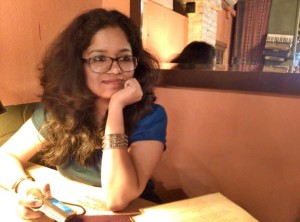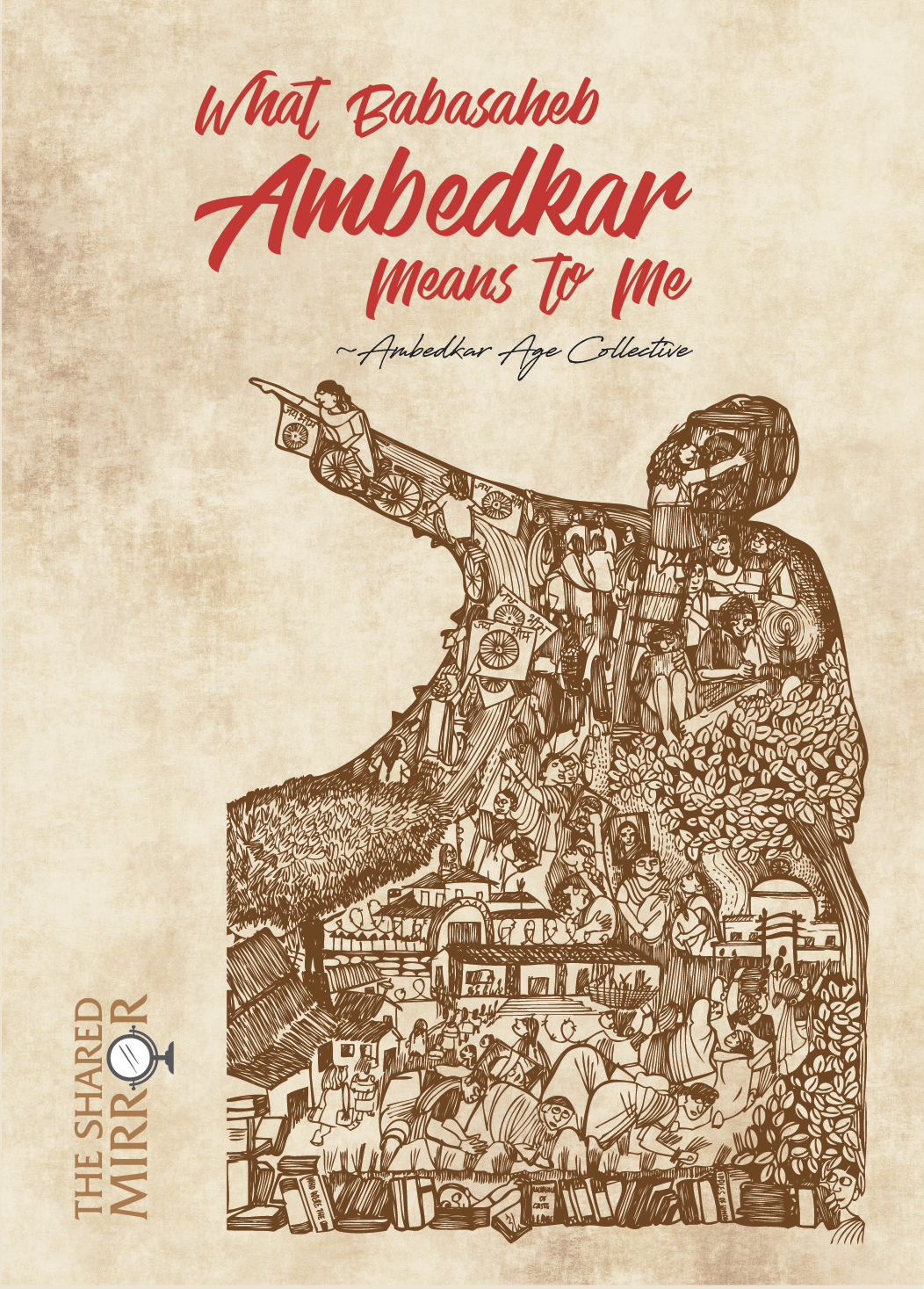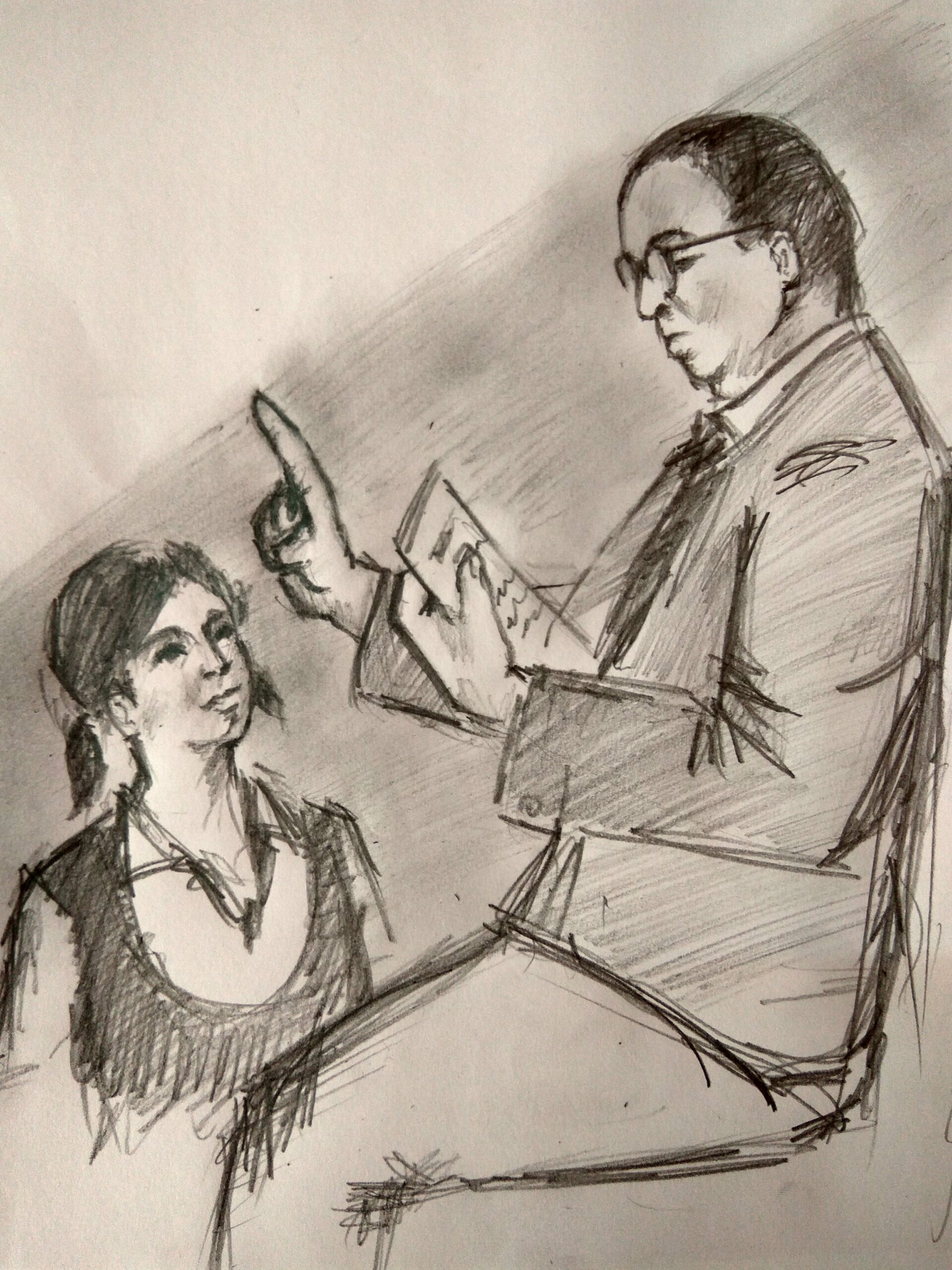Harshada Vinaya
With an intention to build a constructive dialogue and build a support network amongst the Dalit Bahujan students in the UK, a meeting was organised on the 20th of July 2015 in London. The objective of this meeting was primarily to form a network of the Dalit Bahujan students in the UK pursuing their academic degrees to listen to each other and to discuss their perspectives on caste. Furthermore, this meeting was also aimed at exploring the possibility of establishing a long term academic engagement about caste, gender, development and other related concerns.
“This might be the first of its kind”, says Sruthi Herbert, the organizer of the meet. She adds, “When I first came to the UK, I felt that students from marginalized communities had no support system or safe space to discuss their thoughts. Later on, I came across many Dalit Bahujan students who had various exclusionary experiences and dilemmas and thought that it might be a good idea if we could meet and discuss our concerns and perspectives in a safe setting.”
The meeting was attended by masters and doctoral candidates in the university of London, Winchester, and Essex. After the preliminary introductions, wishes from anti-caste organizers were read out. Anu Ramdas, one of the founders of both the Round Table India and Savari wrote in her message “We are members of Dalit Bahujan, majority of whom are excluded from being full citizens. We are the privileged few who have gained access to higher studies, riding on the labour and sacrifice of our communities. And we are the politicised continuum of anti-caste assertions, struggles and movements. Our politicised conscience urges us to be more than just being students/faculty or professionals, even as we seek to excel in our chosen fields, we have a larger goal that is linked to our community’s emancipation.”
Kuffir Nalgundwar, one of the founders of Round Table India sent us his message where he said that “It is almost 80 years since Babasaheb’s ‘Annihilation of Caste’ was published, and almost 85 years since the last official caste census was conducted in India. That is the context. What has changed since then? Part of what has changed since then is that a few of you have reached the west, and are discussing caste and ways to fight it. What hasn’t changed, as the latest caste census proves, is that around 15% of Indian population still commands overwhelming majority of representation in politics, in organized public and private employment, land ownership and in control of industrial/corporate capital. And in the world of ideas, this 15% at the top still wants to occupy all spaces – left, right and centre and all dissenting nooks and crannies too and also ‘introduce’ it. Think of all the violence, all its forms, that is a necessary tool for maintaining this domination. … When others interpret the world for you, can you change it? We’re sure you’re part of this process of interpreting the world from the Dalit Bahujan perspective!”
Their words set the tone for the meeting; the attendees introduced themselves, their academic work and their engagement with Caste. The next two hours witnessed lively discussions ranging across issues bringing in lived experiences, academic discourses and real-world observations to the table, some of which are briefly recorded here.
An important part of the discussion was the observation about the rising academic literature on caste in the last two decades and while acknowledging this trend, the question ‘why is caste on the agenda of Savarna academicians?’ kept arising. Who is articulating? And on whose behalf?
The role of language in shaping everyday discourses was also deliberated upon. The word ‘reservation’ was particularly discussed. In everyday discourse, the word ‘reservation’ carries with itself the connotation as a ‘share’ from someone else’s rightful asset and the very use of this terminology puts the burden on us to justify the demand for the ‘share’ while using the word ‘entitlement’ instead of ‘reservation’ completely changes these dynamics.
Another crucial discussion was regarding the categorisation of caste groups, with both similar and widely different social contexts under the generalised ‘OBC’ category, especially in the light of the overwhelming focus on the communities thus classified as perpetrators of caste violence. The fallacies of this generalised categorisation are observed to be twofold. First, it does not unpack the caste gradations as it exists in the society and second, it is also used as a tool that helps Brahmins look past themselves in their role as oppressors in the dialogue on oppression, by presenting the ‘OBC’s as the neo-oppressors. The discussion further also stressed on the deceptive distinction made between Brahmins and Brahminism and the superficiality of it.
A facebook group through which other students from marginalized communities could find, meet, and exchange information and support each other was proposed. The meeting was concluded on a note of continuing this dialogue further through the digital media, particularly the social networks and through periodical meetings.
Jai Bhim!
~~~
Harshada Vinaya is a masters student at the London School of Economics and Political Science. She studies Social Psychology.



Hell Friends : I am delighted to see the youth contributing wholeheartedly to Ambedka’rs mission.If we all, during our lifetime. cannot eradicate this menace Called the Caste system, then we have no right to call ourselves Ambedkarites or Indian. How can we die when we are leaving this scourge intact? I know the next generation may or may not feel about it, or would suffer on account of it, the way we do. So, its in best interest of ourselves and our future, that we fight this menace. Now
So I want to congratulate all of you spirited folks, Dalits and Bahujans, to continue this mission in UK.
We have to come forward by hardwork and soon we should waive the right of reservation to abolish this system of caste. But, how it can be possible. I think same education to all should be a mandatory criteria. Son of poor and rich should obtain same/equal education upto 12th class at least.
I will soon sent an article answering which will answer your worries and queries. Venu M K
Thank you for your response. Please do bear in mind that savari publishes articles by Dalit, Bahujan, and Adivasi women.
You guys are doing awesome job. Thanks for awakening..
I appreciate this articulation, specially the questions raised on the question ‘why is caste on the agenda of Savarna academicians?’ kept arising. Who is articulating? And on whose behalf? Keep it up.